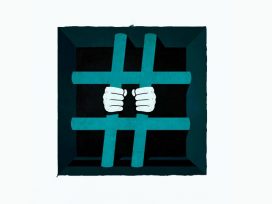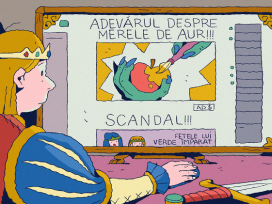Disinformation, hyper-partisanship and the limits of regulation
Eurozine podcast pt. 1: The changing face of the media
Listen to “Eurozine podcast part I: The changing face of the media” on Spreaker.

Published 18 February 2020
Original in English
Published in
In focal points
- Understanding the silent war
- Why conspiracy theories soar in times of crises
- ‘We aren’t telling you what we think – we’re showing you what we know’
- The BBC bounces back
- The business of disinformation
- Public media is a public service!
- The degradation of politics
- A loaded gun
- Ordinary propagandists
- Gone viral
Newsletter
Subscribe to know what’s worth thinking about.
Related Articles

The term ‘hybrid war’ has become synonymous with Russian aggression. It denotes a style of warfare that combines the political, economic, social and kinetic, in a kind of conflict that recognizes no boundaries between covert and overt war. However, this definition fails to recognize crucial distinctions in Russian strategy, writes Mark Galeotti.

Afraid of falling behind, businesses are rushing to implement AI – even if their industries might not be ready for it. In this Standard Time episode, we explore generative AI’s impact on media and journalism, and ask whether its making us smarter or dumber.








